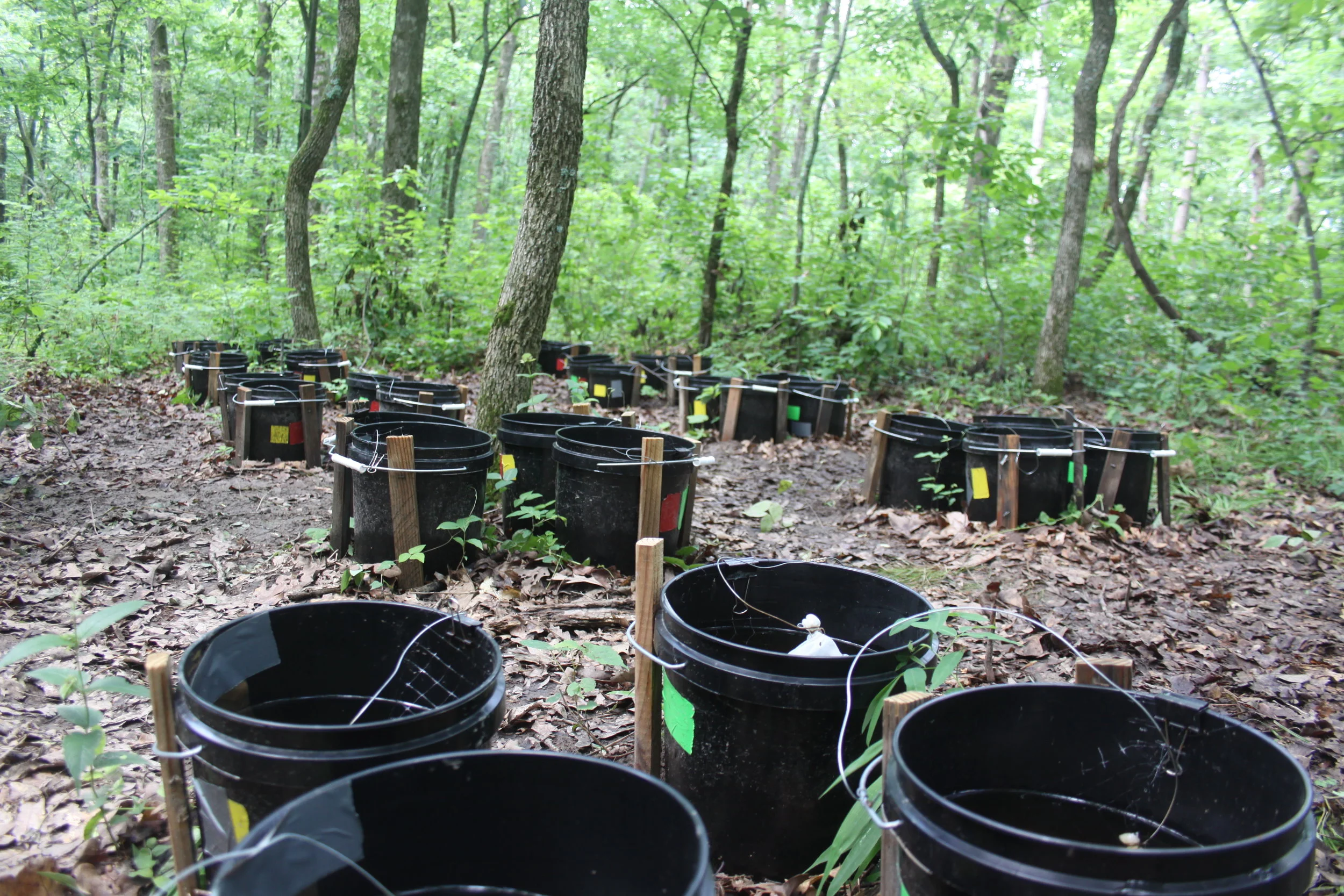Ecology, invasion, and parasite infection in container mosquitoes
Container-breeding mosquitoes are a group of ecologically similar mosquitoes that breed in natural and artificial containers such as tree rot holes and discarded vehicle tires. These mosquitoes vector a number of important pathogens including West Nile and dengue viruses which makes their ecology and evolution of practical concern. Due to their short lifespans and discrete larval habitats, they are also a very tractable model system to test basic ecological questions about how biotic and abiotic factors influence abundance, distribution, and population growth. The mosquito projects at Tyson investigate multiple aspects of the ecology and evolution of these mosquitoes using both laboratory and field experiments. Examples of the types of questions asked include:
1) Are invasive mosquitoes locally adapted to climate?
2) What is the role of geographic origin and the environment on the size-fecundity relationship?
3) How do invasion and habitat quality influence parasite infection in native mosquitoes?
4) How does habitat history affect community composition and predation risk?

